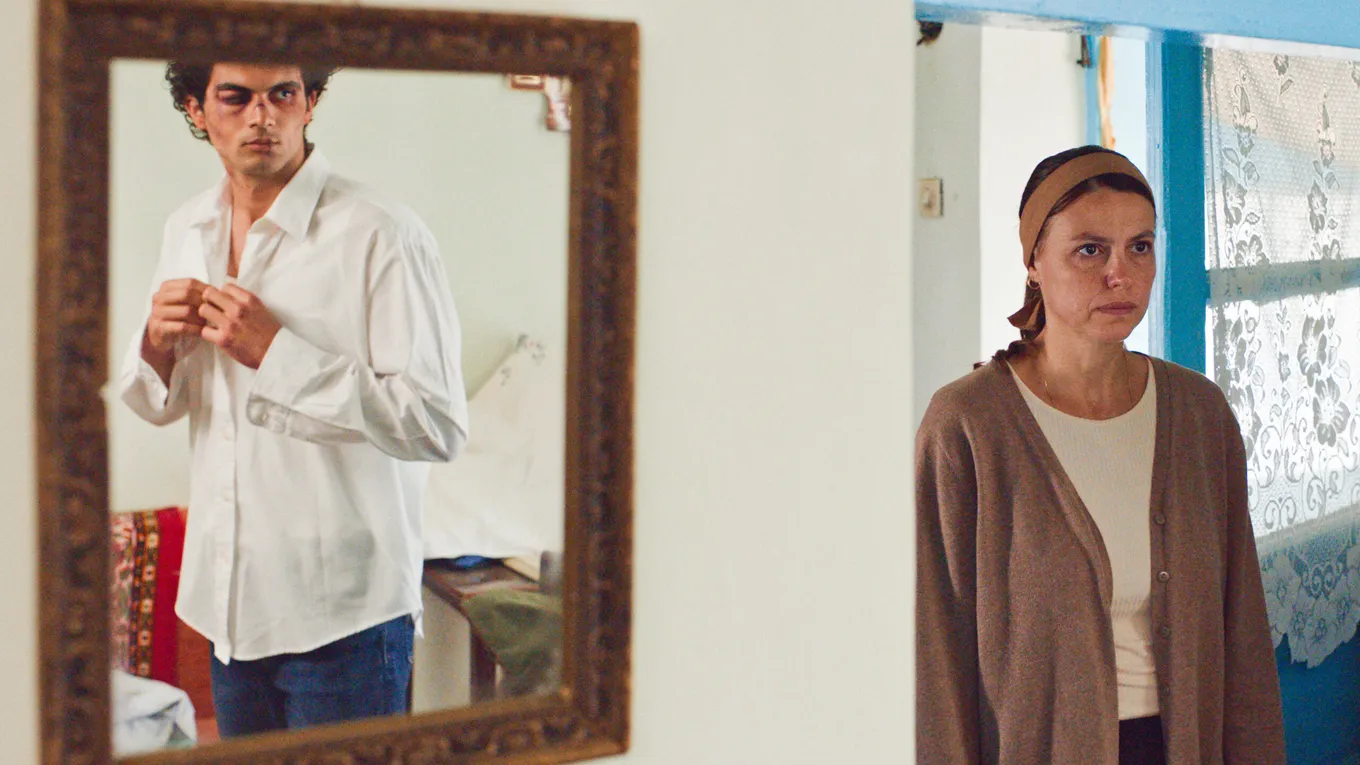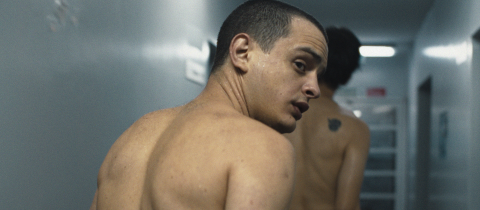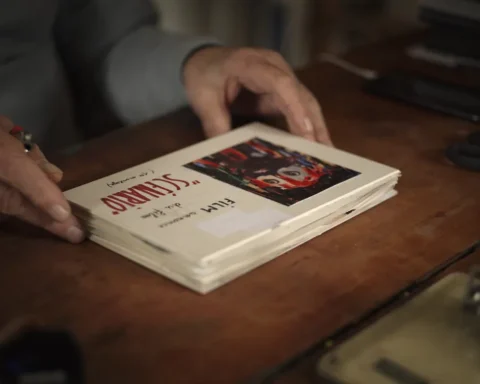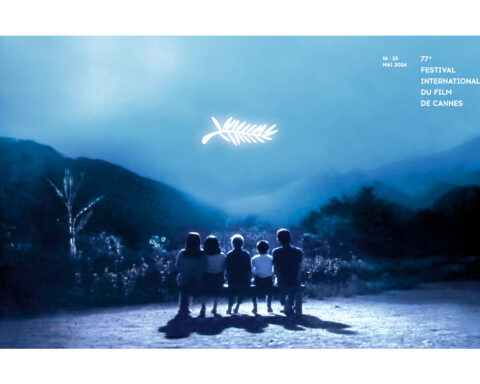Trei Kilometri Pana La Capatul Lumii (2024)
Another Cliché of “Corrupted Romania”
An audience familiar with Romanian cinema knows that the typical elements of the genre often focus on social and political corruption. While Emanuel Parvu seems to be following the footsteps of masters like Cristian Mungiu and Cristi Puiu, he appears to be lagging behind.
Young student Adi spends his summer vacation in the rural area with his family. One night, he is brutally attacked on the street, and the next day his world turns upside down. His parents no longer look at him the same way, and the apparent tranquility of the village begins to crack.
The director chooses a small village without a connection to the sea this time to bring up the clichés of “Corrupted Romania” through microcosms, highlighting macro issues. The collapse of the justice system, lack of meritocracy in political relations, hierarchical distortion, and bribery; everything seems to be tainted – even the small tourist office is involved in tax evasion. And of course, there are references to communism, whether relevant or not. In this film, the conflict of religion and homosexuality is also added to these, but the forced connection of all these elements leads to inconsistencies or loss of credibility in the story. The director not only shows these to the audience but also expresses them through the character’s dialogue: “This country is rotten.”
I don’t know if there still exists a village so far from modernity in Romania in 2024. However, regardless, the director must make his film universe believable to the audience through his choices, and this might be one of the film’s problems. The values of this isolated village, just 3 km from the end of the world, are so rigid and fragile that they could be shaken by a passing tourist in just a few minutes. The characters’ view of the city is very clear: a nest of disease, morally corrupt, and everything is purely evil. Similarly, the attitude towards homosexuality is quite conservative, almost as if it were seen as a disease that needed to be cured, reminiscent of attitudes from 40-50 years ago. Furthermore, it seems like Adi’s family almost disowns him because of his sexual preference – isn’t the family supposed to be the only unit that loves unconditionally?
Strong cinematography and the director’s technical choices make the film worth watching; the camera is well-positioned in harmony with the characters. It effectively emphasizes moments of pressure or tension and moves to reflect the atmosphere’s tension when needed. There’s neither too much nor too little in the frame; the mise-en-scène is in harmony with the narrative elements of the film. The acting can be said to be good, but the character depth remains quite weak; the whole village seems to be the same: bigoted, corrupted, with everyone being bad; there’s no one thinking differently. Also, it feels like the main character, Adi, either suppresses his experiences too much or there’s something missing in his performance. With the final breach of the fourth wall, we understand that Adi is actually looking at himself in the mirror, but the meaning behind this action remains ambiguous.
Although the script occasionally seems to break out of the routine (like with the social services worker), it eventually succumbs to a vicious cycle. And just as we’re accustomed to from films the director draws inspiration from, the chain of corruption continues with another corruption and entrapment; all the events are covered up, and everyone is supposedly happy. As Adi escapes the trap and moves towards the center of the world, towards the sun, the only thing left behind is once again the corruption itself.
“Three Kilometers to the End of the World” premiered at the competition section of the 77th Cannes Film Festival
Nil Birinci






